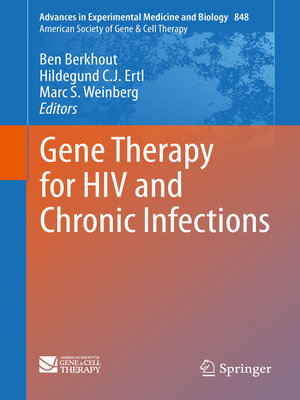Gene Therapy for HIV and Chronic Infections
ebook ∣ Advances in Experimental Medicine and Biology
By Ben Berkhout

Sign up to save your library
With an OverDrive account, you can save your favorite libraries for at-a-glance information about availability. Find out more about OverDrive accounts.
Find this title in Libby, the library reading app by OverDrive.



Search for a digital library with this title
Title found at these libraries:
| Library Name | Distance |
|---|---|
| Loading... |
This book centers on gene therapy and gene transfer approaches to prevent or treat chronic virus infections. The main focus is on the Big Three: human immunodeficiency virus (HIV-1), hepatitis B virus (HBV) and hepatitis C virus (HCV). Ample anti-HIV drugs are currently available in the clinic and the development of an effective combination therapy has dramatically improved the lifespan and quality of life of infected individuals. A similar trend can already be recognized for HBV and HCV: the development of multiple (directly acting) antiviral drugs and plans to control or even cure the infection. However, approaches that help prevent infection, or which provide long-lasting treatment (such as a cure) remain important goals. Immunization through gene transfer vehicles encoding immunogenic viral proteins shows promise in preventing infections with complex, highly variable, viruses such as HIV-1 or HCV. Gene therapy applications for virus infections have been discussed since the early 1990's. Whereas a true cure seems difficult to achieve for HIV-1 due to its intrinsic property to deposit its genome into that of the host, such attempts may be within reach for HCV where spontaneous viral clearance occurs in a small percentage of the infected individuals. The prospect of original gene therapy approaches may provide alternative ways to reach the same endpoint by, for example, silencing of CCR5 expression post-transcriptionally. Many alternative antiviral strategies have been developed based on a variety of novel molecular methods: e.g. ribozymes. Some studies have progressed towards pre-clinical animal models and a few antiviral gene therapies have progressed towards clinical trials. This book provides an overview of this rapidly progressing field, while focusing on the interface of gene therapy and immunology/vaccinology.







